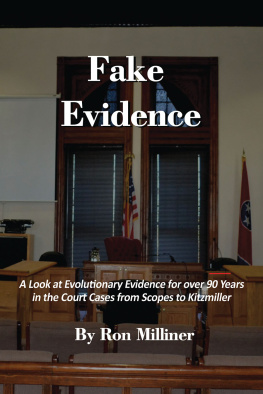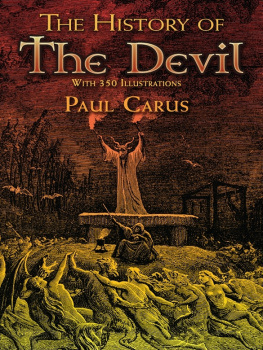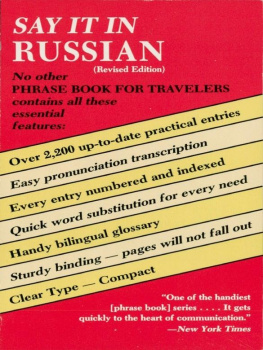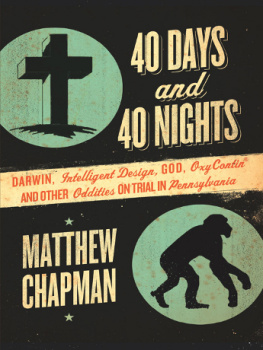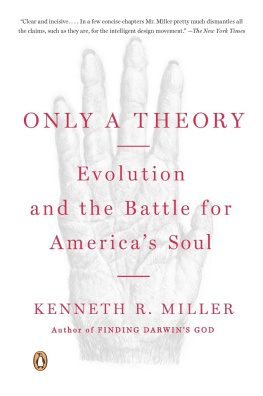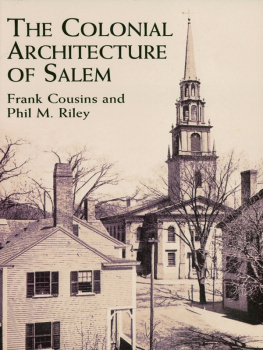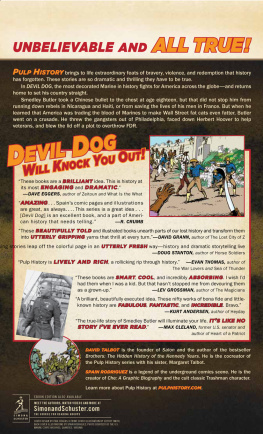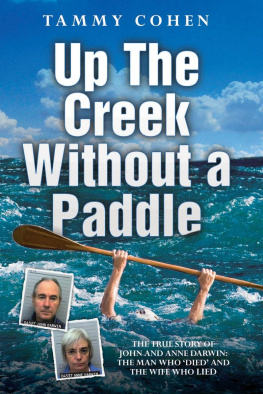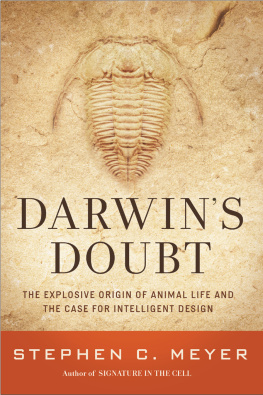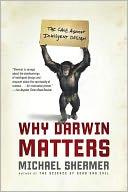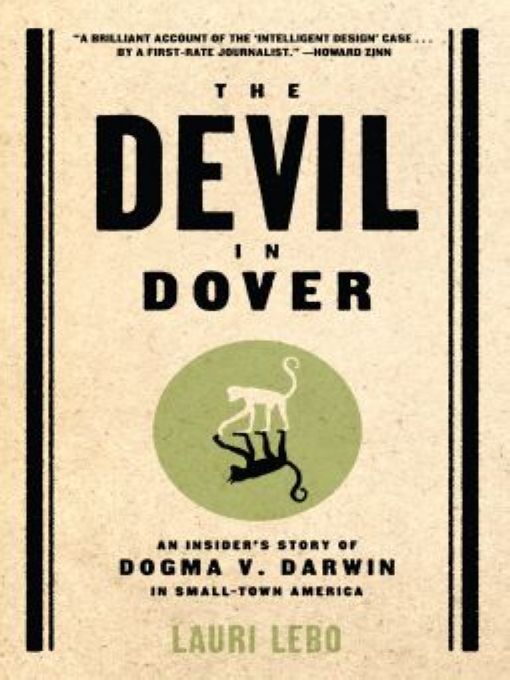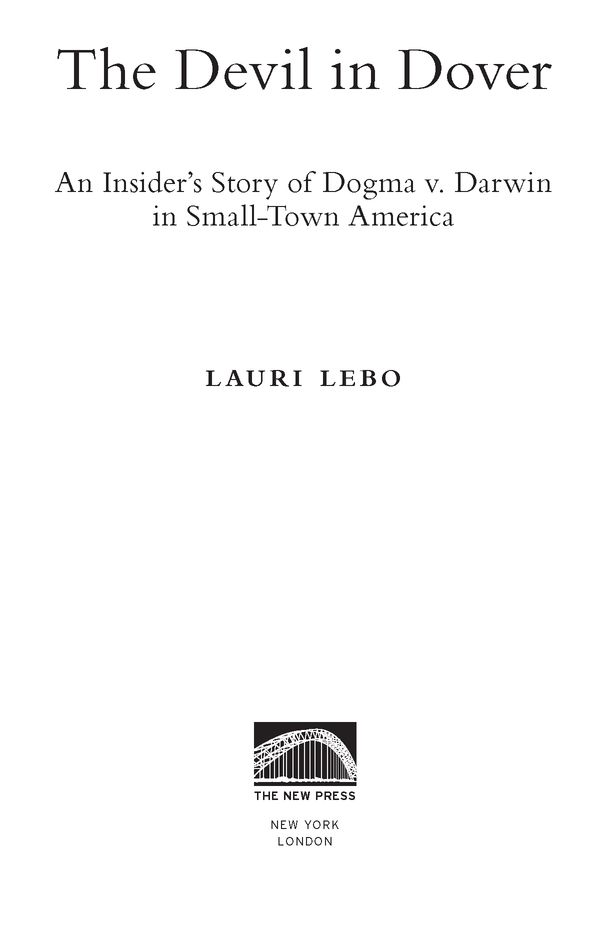Table of Contents
Dedicated to the Danbury Baptists, Thomas Jefferson,
and to the Separation of Church and State
A few weeks before the Kitzmiller v. Dover Area School District trial began, Bruce Springsteen introduced Part Man, Part Monkey, at a concert in Newark, New Jersey by saying Dover, PAtheyre not sure about evolution. Here in New Jersey, were countin on it.
Part Man, Part Monkey
They prosecuted some poor sucker in these United States
For teaching that man descended from the apes
They coulda settled that case without a fuss or fight
If theyd seen me chasin you, sugar, through the jungle last night
Theyda called in that jury and a one two three said
Part man, part monkey, definitely
[...]
Well did God make man in a breath of holy fire
Or did he crawl on up out of the muck and mire
Well the man on the street believes what the bible tells him so
Well you can ask me, mister, because I know
Tell them soul-suckin preachers to come on down and see
Part man, part monkey, baby thats me
Bruce Springsteen
Prologue
When I was in junior high, I developed a crush on a reporter. The father of a friend of mine, he worked in the Harrisburg Bureau of the Pittsburgh Post-Gazette. Ed Jensen was paunchy and bald, and he probably drank too much. He played card games of hearts with colleagues in the statehouse newsroom all day and filed his stories just before deadline.
He was funny and smart, and his shelves were filled with books by authors like Nabokov and Dostoevskynames that sounded exotic to my young ear. Most importantly, Mr. Jensen loved to talk with his daughters friends, listening intently to our stories about school and sports and dating. I thought he was the coolest guy in the world.
Attracted to the idea of working at a job in which I could sit around and play cards and have oh-so-clever conversations, I decided to be a journalist.
On March 28, 1979, five miles from my home, the nuclear reactor at Three Mile Island overheated. Amid fears of meltdown, thousands of people fled central Pennsylvania. Ed Jensen stayed. It wasnt his beat, but he sent his wife and children home to Pittsburgh, while he remained behind. He filed daily reports because he believed in the importance of his job.
Three years later, he died of cancer and I understood what it means to be a reporter. Every now and then, in between the card games and the legislature press conferences and United Way dinners, journalists get to report on a story that makes a difference.
I have been a reporter for eighteen years. Most of my career has been spent writing and reporting on the community where I was raised. In that time, Ive gotten to cover a lot of amazing stories and meet many wonderful people. Even though Ive never played cards in the newsroom, its been an incredibly pleasurable and rewarding job. Sometimes, such as the days spent in the federal courtroom covering Dovers battle, Ive marveled that I was getting paid to have so much fun.
For years, I had an old Washington Post cartoon taped to my desk. It was a picture of a dartboard under a sign that said, What am I an expert in? People were hurling darts at the board, each section of which was labeled with a different topic: politics, local government, air quality, nuclear regulatory issues. The tagline of the cartoon said, How a journalist starts his day. Ive always felt that aptly summed up what a lot of us do.
On any given day, I walked into the office with no idea where I was going to go, or who I was going to get to talk to before the day was over. On spring days, when the redbuds were blooming, I called up my sources and said, Get me out of the office. Lets go for a ride. Ive danced the Virginia reel under the stars, surrounded by men in Civil War uniforms and beautiful women in hoop skirts and lovely coiled hair. Ive been kissed by a capuchin monkey wearing a diaper. Ive petted a mountain lion. Ive hiked Picketts Charge on a dusty summer afternoon, musing over Faulkner.
Ive listened to an elementary school principal tell me what its like to put herself in between a class of five-year-olds and a man wielding a machete. I watched as she traced the scars of her hands where the machete cut through her fingers and down to her palms and said, My hands are ugly now. I went back to the newsroom and put together a story in which I wrote, Shes wrong. Her hands are beautiful.
And occasionally, I believed I wrote stories that made a difference.
But that belief was dealt a blow following Dovers trial. I had been invited to speak at Evolution 2006, a conference hosted by Stony Brook Universitys Department of Ecology and Evolution. Organizers asked me to speak about my coverage of the Dover trial as part of a symposium that included one of Dovers plaintiffs, the plaintiffs attorneys, and the trials science experts.
It was not an unusual invitation. Journalists frequently give speeches to different organizations.
But when my editors learned of the invitation, they told me that I was not permitted to participate. Despite months of coverage in which I wrote of the vacuity of intelligent design, my editors feared I might come across, as one editor said, as pro-evolution. The conference was the joint annual meeting of the Society for the Study of Evolution (SSE), the Society of Systematic Biologists (SSB), and the American Society of Naturalists (ASN). The newspapers managing editor, Randy Parker, said in a letter to me that these organizations are all representing a one-sided interest.
Editors told me that scientists had a vested interest in the outcome of the national debate over evolution and intelligent design; therefore, it could be perceived as a conflict of interest and I could jeopardize the newspapers objectivity. I was told that if I defied the newspapers directive not to speak there, I would be subject to discipline, up to and including dismissal.
I was deeply frustrated that an institution that championed the First Amendment would try to silence one of its reporters; ultimately we entered a standoff that lasted several months. Finally they relented. I was allowed to speak, as long as I agreed not to mention the name of my newspaper in my speech.
Unfortunately, thats the state of journalism today. All too often those entrusted to sift through the facts and tell the truth are urged to merely parrot the statements of others, without addressing the context of the story, and we are taught that journalism is simply airing the two sides to every disagreement. All too often we are afraid to stand up for what we know to be true.
You Have Much Skill
Why Ive heard people say God cannot be alive... if theyll call on him and just believe
Loretta Lynn, God Makes No Mistakes
I sit across from my father in a Chinese all-you-can-eat buffet restaurant. It is near closing time, and the room is empty save for a single waiter hovering next to us with a pitcher. I take a sip of water. The man swoops in and tops off my glass. Sip. Pour. Sip. Pour. I wish hed go away.
The restaurant sits in a strip mall and is decorated in garish combinations of red and gold. The food here is covered in heavy sweet-and-sour sauces to appeal to local Pennsylvania Dutch palates. Mashed potatoes are served alongside General Tsos chicken. You like this kind of food? my father asks me. He finds this place exotic. This both infuriates me and breaks my heart.


